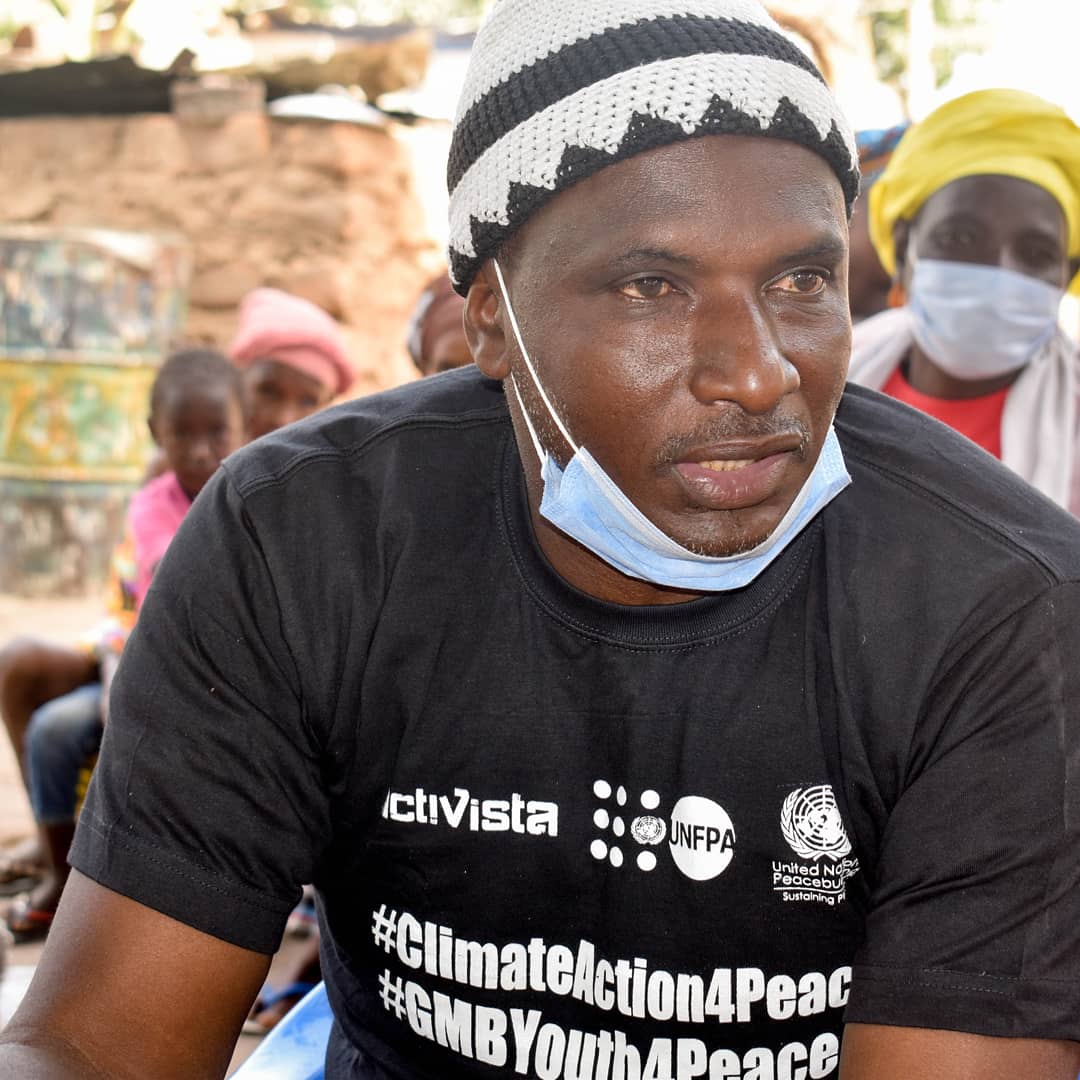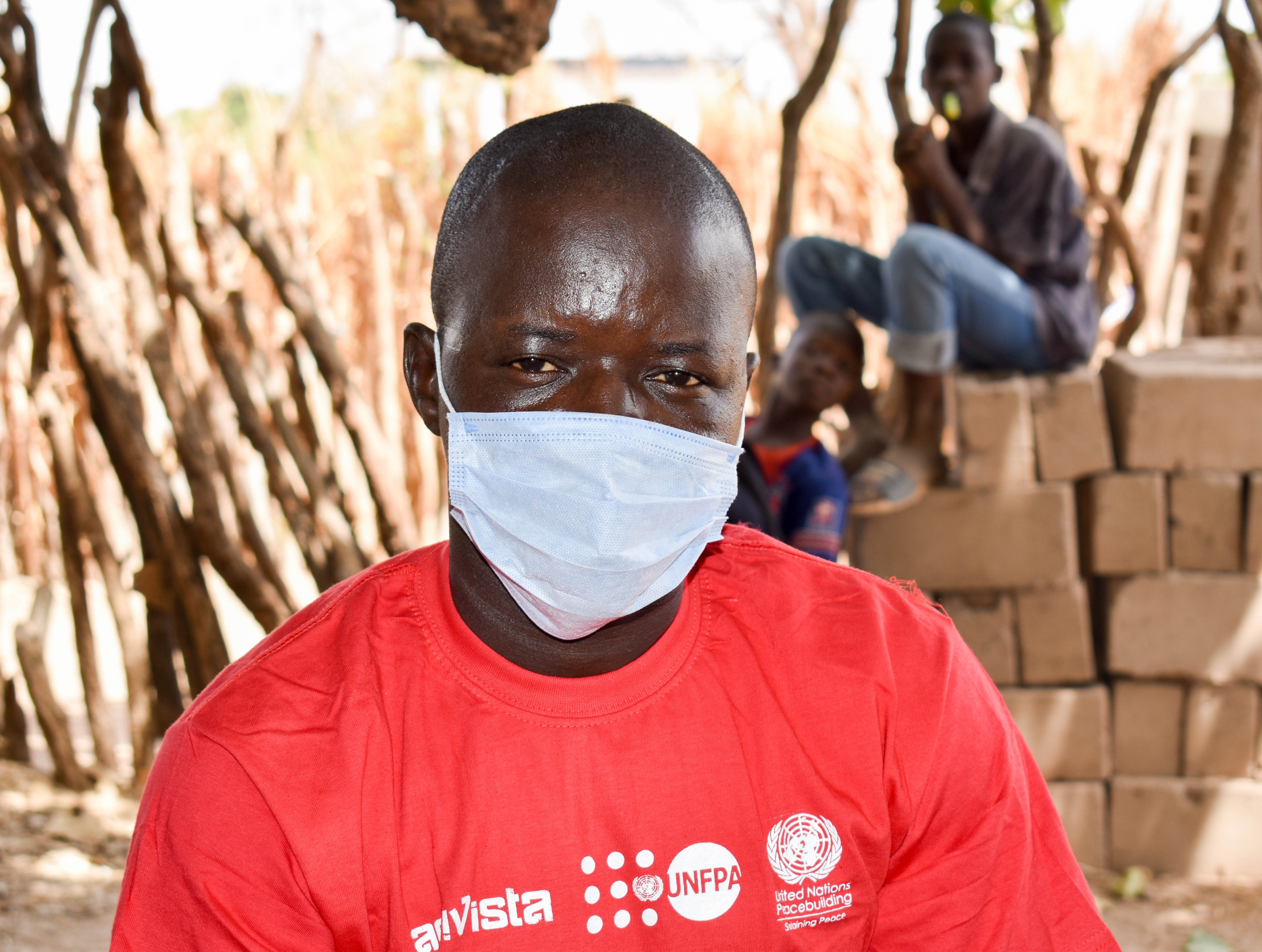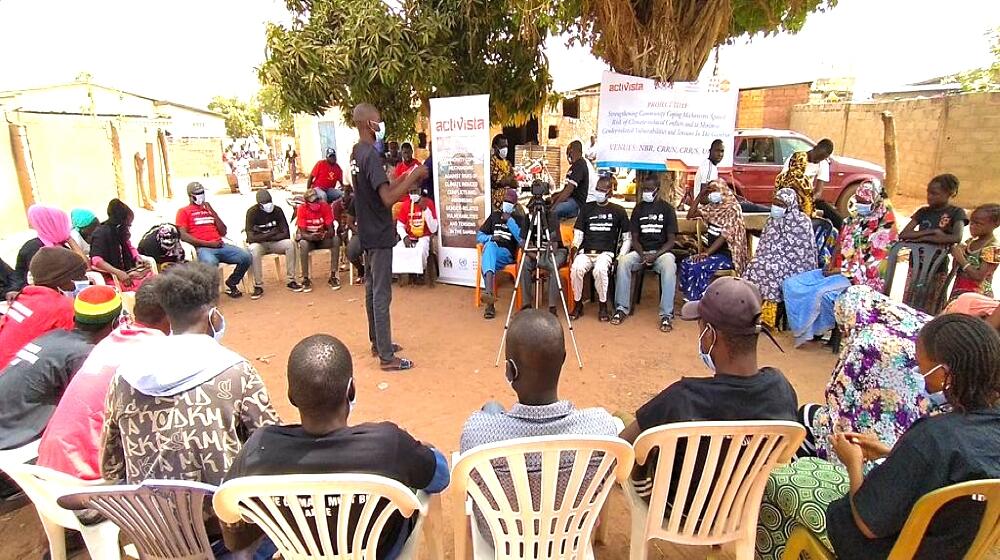Vulnerabilities influenced by climate change and its impact on lives, livelihoods and communities are most felt by the demography that is already often left behind, particularly women. As a result, positive action and responses to climate change and its induced vulnerabilities must center the voices and needs of women, in order to arrive at inclusive and participatory sustainable solutions.
As part of activities under the UN Peacebuilding funded project on Strengthening community coping mechanisms against risks of climate induced conflicts and to minimise gender related vulnerabilities and tensions in The Gambia, UNFPA The Gambia supported inclusive community dialogues in the North Bank, Central River, and Upper River Regions of The Gambia. The dialogues created a platform for communities to share problems and to strengthen their understanding of climate change induced-conflict and vulnerabilities and were aimed at identifying and facilitating community-led solutions to the impact of climate change including conflicts in target communities. Held from the 8th to 12th March 2021, the conversations drew participants from about 15 communities in each region, including local authorities and community members and reached over 150 people across the three regions.

In facilitating the discussions and ensuring accurate and fact-based conversations on climate change realities in The Gambia, representatives of the Ministry of Forestry, Environment, Climate Change and Natural Resources engaged participants. The discussions at the dialogues centered around the facts and myths around climate change and its causes, the destruction and degradation of natural resources caused by climate change and the dynamics around preventing, mitigating and coping with climate induced conflicts.
According to Sonko Sanneh a participant in one of the dialogue sessions, community ownership and action is vital in tackling climate change and its impact on the population.
Climate change makes our communities prone to natural disasters and when disasters happen, our women and children bear the brunt of it. This is why must all do something to address it.

Speaking at a dialogue session in Pachang in the northern part of the Central River Region of The Gambia, the Project Coordinator of ACIVISTA The Gambia emphasised the need for communities to design solutions to the challenges they face in dealing with climate change and its impact. He highlighted that when community mechanisms are strengthened, conflicts induced by climate change will be addressed through a social cohesion and peacebuilding lens and ensure that those most vulnerable and affected by such conflict are catered to.
With the support of the UN Secretary General’s Peacebuilding Fund, UNFPA is working with its partners in The Gambia to strengthen mechanisms to prevent and respond to climate induced conflicts and minimize the gendered impact of such conflicts in perpetuating vulnerability and inequality in communities.
Media contact:
Haddy Jonga – Programme Analyst Communications, UNFPA The Gambia jonga@unfpa.org


